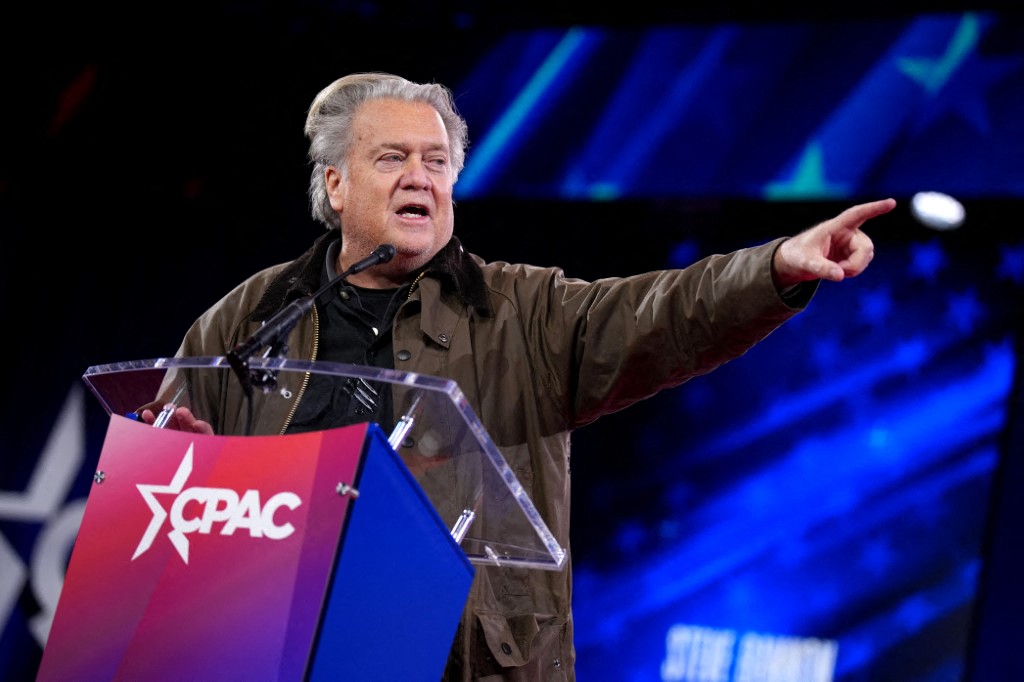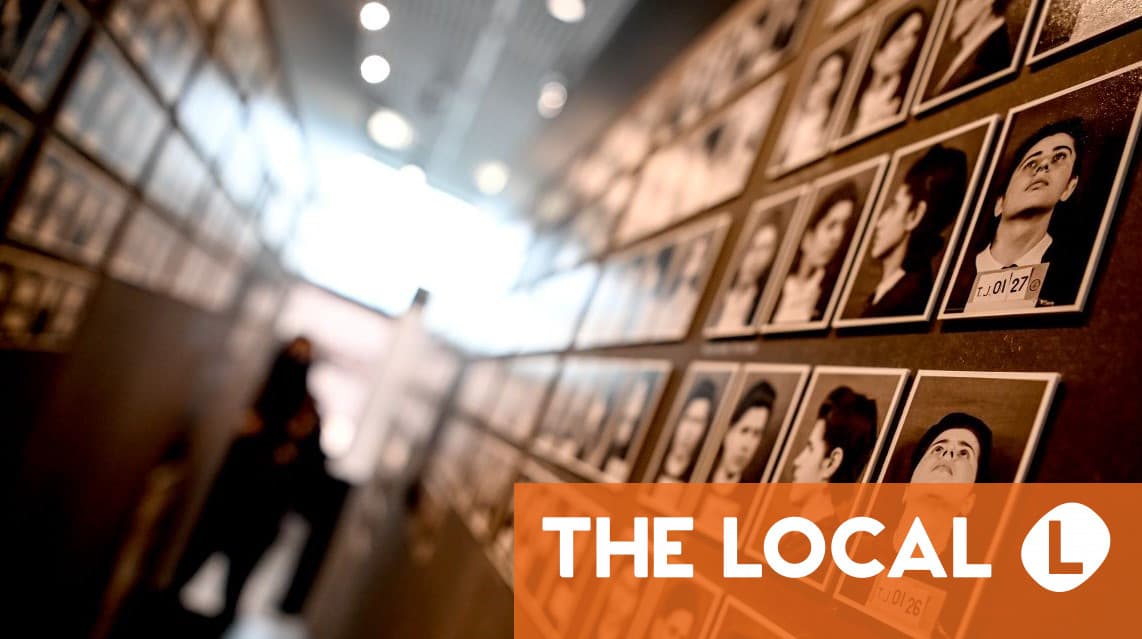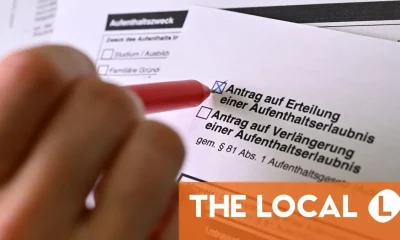“Worried”, “nervous” and even “terrified” were some of the words used by our readers to describe how they felt about the results of Germany’s recent federal election in which the far right Alternative for Germany (AfD) party got the second most votes (around 20 percent), marking the highest post-war score for a far-right party.
Concerned citizens and immigrants have voiced serious warnings against the AfD for years – indeed party members have given critics a lot to be concerned about. From joining a secret meeting to discuss mass-deportations, to using Nazi slogans and criticising Holocaust remembrance, if you are looking for evidence that AfD members may be following in the footsteps of the National Socialists (Nazis), there’s plenty to be suspicious about.
But whether or not Germany is really at risk of repeating its darkest chapter is more difficult to unpack. It’s true that there are similarities between Germany’s current political climate, and that of say around 100 years ago. But it’s also true that the country’s Basic Law has stronger protections for Democracy now, and that the tradition of Holocaust remembrance is still strong.
With that in mind, The Local spoke to historian and Director of the Topography of Terror Foundation in Berlin, Dr. Andrea Riedle, about the recent rise of fascist politics in Germany (and elsewhere) and to what extent it mirrors that seen in the lead-up to the Holocaust.
Fascism in the 1930s and 40s as compared to today
Asked if Riedle saw similarities between what was happening when the Nazis rose to power and the current political environment, she began by noting a distinction between fascism broadly and National Socialism that took power in Germany in the 1930s and 40s.
While fascism – which was observed in Italy around the Second World War as well as a number of other countries since then – comes with devastating consequences for many people, Riedle said that “National Socialism was far more radical…and, with the murder of European Jews in the 1940s, pursued the extermination of an entire population group”.
She added: “When using the term ‘fascism’ in relation to today’s political phenomena, there is a danger of trivialising these historical crimes.”
That said, there are legitimate similarities between the tactics far-right parties – including the AfD, or US President Donald Trump’s MAGA movement in the US – are using and those that the Nazis used to gain influence.
A demonstrator holds up a placard showing Thuringia’s AfD leader Bjoern Hoecke giving the Nazi salute and reading “Never Again” as activists from different groups demonstrate against right extremism and the policy of Germany’s far-right the Alternative for Germany (AfD) party in front of the Brandenburg Gate in Berlin. Photo by Adam BERRY / AFP
“Certain mechanisms that worked back then can be observed again today,” Riedle says, adding that leaders of these parties “work with hate, agitation and disinformation, while facts often play no role”.
The historian notes the degradation of minorities, the announcement of mass deportations, the contempt for women’s rights and members of the LGBTQ community, and even the denial of man-made climate change are all clear examples of ideas that fit within the Nazi ideology.
READ ALSO: ‘A fifth of voters hate me’ – How do foreigners in Germany feel about far-right surge?
Advertisement
‘A massive political shift’
Looking outside Germany, experts note that there has been a political change that is leaving many worried that fascism is emerging in other the western democracies.
Billionaire Elon Musk, who’s become a highly involved supporter of both Donald Trump and the AfD, was seen giving what appeared to many to be a Nazi salute on stage at Trump’s inauguration in January.
READ ALSO: What are the rules around showing the Nazi salute in Germany?
Asked about her reaction to the gesture, Riedle said: “It can be assumed that he knew exactly what he was doing.
“For me, the Nazi associations that go with it are hard to bear. And you have to imagine what this image must have looked like to Holocaust survivors.”

Steve Bannon, media personality and political strategist, speaks during the Conservative Political Action Conference (CPAC) on February 20, 2025 in Oxon Hill, Maryland. Bannon was accused of doing a straight-arm Nazi salute (not depicted) at the end of his speech, but claimed it was ‘just a wave’. Photo by Andrew Harnik / GETTY IMAGES NORTH AMERICA / Getty Images via AFP
Since then, other members of Trump’s MAGA movement have also allegedly made the gesture at public events, including Steve Bannon who served as Trump’s chief strategist during his 2016 campaign.
The Anti-Defamation League, an antisemitism and human rights watchdog, wrote on X that Steve Bannon has a “long and disturbing history of stoking antisemitism and hate, threatening violence and empowering extremists…”
READ ALSO: Where in Europe is the hard right on the rise?
Given the alleged use of Nazi gestures by some party members, and their efforts to ramp up mass deportations of immigrants as well as attack women’s and LGBTQ rights, some have suggested that the US Republican party (GOP) under Trump’s leadership has become a neo-Nazi party. In fact, some reports suggested as much as far back as 2017.
Advertisement
Riedle points out that although some people may see some similarities between Trump and Hitler as leaders, “there are many differences”.
“Nevertheless, the dangers that Donald Trump poses should not be underestimated,” she adds.
“Incidentally, I don’t think it’s worrying that there are people like Donald Trump. What is worrying is that he is being put forward as a candidate by an established, conservative party. That is a massive political shift.”
Democracy requires constant vigilance
Overall, Riedel’s perspective suggests that no, we don’t need to freak out that Germany is hurdling toward another fascist uprising like that of the Nazis – but yes, there is legitimate cause for concern.
“The situation today is not identical to the situation back then,” Riedel says. “The democratic Weimar Republic had many enemies and was far less socially anchored than the Federal Republic of Germany is today…The difficult economic situation after the crisis of 1929 and the high unemployment in the 1930s cannot be compared with the situation today either – despite all the problems we currently have.”
Advertisement
But what is strikingly similar is that right-wing populist politicians continue to work toward democratic upheaval.
“The National Socialists also pursued a legal course after the failure of their attempted coup in November 1923 – in other words, they tried to come to power through democratic elections. But democracy was only a means to an end for them. As soon as they had political power they abolished basic rights such as freedom of opinion, freedom of the press and freedom of assembly and established a dictatorship.”
Recent comments by Trump, calling for an end to term limits for US presidents or referring to himself as “king” fit this pattern. AfD leaders haven’t made statements to the same degree, but the party’s anti-EU and anti-euro stance show that it would like to steer Germany away from Europe’s biggest democratic institutions.
Riedel reminds us that Hitler succeeded in grabbing power because “the dangers he posed were not taken seriously enough”.
FACT CHECK: The false claims made during AfD’s chat with Musk ahead of election
Advertisement
She adds: “Reich President Hindenburg, who was in favour of a government of united right-wing forces should not have appointed Adolf Hitler as Reich Chancellor in January 1933.”
Riedel adds that in the beginning, only two out of 13 members of Hitler’s cabinet were National Socialists, and other ministers thought they would be able to hold him back.
“The fatal misjudgement of Franz von Papen, the Reich Chancellor’s deputy, was thinking: ‘In two months, we will have pushed Hitler into a corner so that he squeaks.’”
For now, the far right in Germany has been relegated to a position of opposition with no leading decision making power, thanks largely to the centrist parties’ adherence to the ‘firewall’ (Brandmauer).
But with support for the AfD having doubled since the last federal election, and with Merz having recently led the centre-right Union parties to vote with the AfD on migration aimed at tightening migration rules all eyes will be on how the situation develops until the next German election in 2029.
READ ALSO: What protection does Germany have against future dictatorships?





































